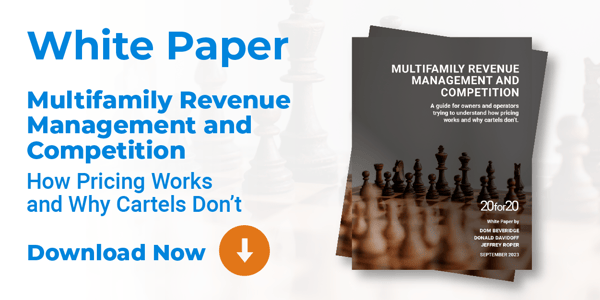
"There's no smoke without fire" has always been a dubious expression—and one most commonly heard in the context of gossip. It came to mind as the rumor mill started up again following the most recent local government action against revenue management (RM), this time in Seattle.
Seattle's new ordinance mostly mirrors those already passed in San Francisco, Berkeley, Philadelphia, San Diego, and others. That is to say, it makes it illegal to use algorithmic pricing that aggregates confidential data from two or more competitors in the market and uses that data to coordinate prices between competitors.
For those not following the story: there was only ever one major provider whose pricing software shared confidential data between competitors. During the course of the controversy that started with a 2022 ProPublica article, the provider changed its software. Now, none of the major RM providers uses confidential data in its algorithms, so the local ordinances passed to date outlaw a practice that nobody follows.
What's different about the Seattle law
There are a couple of things that are different about the Seattle ordinance. First, it takes the extra step of prohibiting the use of public competitor data, as well as nonpublic.
Time will tell whether or not that provision is constitutional - if data is in the public domain, it is not clear that a city legislature has the right to ban what types of math companies perform on it. But for the foreseeable future, algorithms that use any kind of competitor data cannot legally be used to price apartment units in Seattle.
That will inconvenience operators currently using one of the numerous RM applications using comp data in their pricing models. They will have to stop. Although on the basis of good pricing practice, that is a blessing in disguise. This blog has been vociferous in explaining why comp data has no place in pricing algorithms.
But the more insidious development with the Seattle bill has nothing to do with the ordinance itself: it's to do with some companies' reaction to it.
A new set of risks
Since the passing of the Seattle bill, informal market feedback suggests that some legal departments are spooked by the bill. Some are even hesitant to continue using RM software at all, irrespective of whether or not their software uses comp data.
This reaction is worth understanding: if an RM app is compliant with the new law, why are legal departments treating this latest development differently? One possible explanation is that Seattle is the largest market to apply such a law since the vogue for outlawing algorithm-based collusion began a year and a half ago.
Another is the timing: Seattle passed this law after the proposed settlement between Cortland and the DOJ. The danger now is that legal departments treat the (onerous) terms of that agreement as a precedent when making any decisions about RM.
That is a risky line of thinking for the industry. Last year, I testified against a similar bill in the Colorado legislature. Thankfully, Governor Polis had the foresight to veto that bill a couple of months ago. But what struck me as I listened to the arguments that day was that there is nothing about the anti-algorithmic logic that will confine itself to pricing.
Any piece of software that looks like it provides landlords an advantage—real or perceived—over residents is likely to end up in the crosshairs of progressive legislatures. When legal departments take the wheel of business decisions and follow the path of lowest legal risk, they increase the risk of substantially limiting what analytics will be permissible in the future. (Good luck explaining how AI models are trained!)
Why it's worth reading the (not-so) fine print
It is also possible that this latest case of the jitters is due to nothing more than a broad misunderstanding of what the ordinance says—and of the activity it purports to outlaw.
It is easy for journalists and legislators to make technology sound as though it's facilitating collusion. For example, the following facts are true of many (possibly most) B2B software companies:
- They have access to a great deal of their clients' confidential data.
- Their software helps automate strategic decisions on behalf of their customers.
- They frequently do the above on behalf of multiple competing companies at the same time.
As I noted in my original article, all of the above are true of a company like Salesforce.com, a firm that has a dominant position across nearly all areas of business. But it would be absurd to suggest that Salesforce is facilitating collusion. So why should it be any different in the case of RM providers?
Take a step back
There seems to be an opportunity for cooler heads to prevail here. As I said in this year's 20for20 Annual Survey, there is a strong case for voluntary industry standards. RM software companies could publish exactly what they do with the data they process, proactively making the information transparent to all parties and making it clear which apps are compliant with laws like Seattle's.
For those of you still reading, I have one more ask: please forward this article to your firm's general counsel. Because I genuinely want to know—why is it that anyone thinks a good tradeoff for multifamily technology is to sign away the right to use certain types of software just because it appears, on the surface, to be the lowest-risk option?
It seems unlikely that the near-term legal risk will be the end of this story. So why make your firms behave as if they are breaking laws that they aren't? Answers will, of course, be treated confidentially, and for further background, listen to Season 2 on the 20for20 podcast, which went through the challenges in depth with numerous legal experts.
Photo by Josh Fields on Pexels



